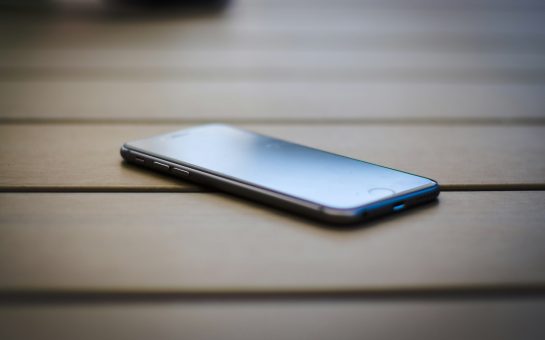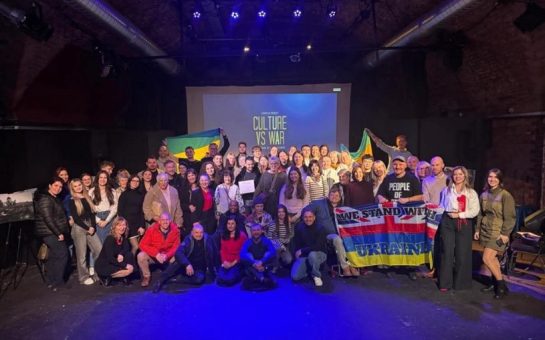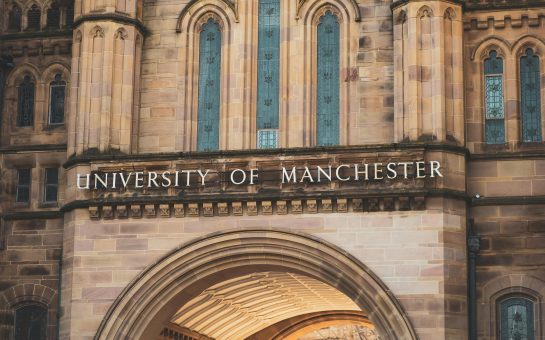We’re almost halfway through what has been the most crazy year the world has seen for a very long time.
Political tensions are building amid the ongoing coronavirus pandemic, and the year is set to conclude with the 2020 American presidential election where Republican Donald Trump will run against Democrat Joe Biden.
If Trump wins a second successive election in the United States, it will keep him in power until 2024 — the year Vladimir Putin’s rule in Russia currently expires.
However, as of July 1, Putin could well see his rule extend beyond 2024 as Russia votes on whether to pass a constitutional amendment that could keep him in power until 2036.
Trump’s re-election is a possibility. Putin’s extension of power, however, is more than a just a possibility — it’s highly likely.
Stephen Hutchings, Professor of Russian Studies at the University of Manchester, analysed Putin’s chances of getting the constitutional change passed; and, in its broader sense, the issue of corruption in Russia.
“There are elections, there are political parties. But it’s a facade, and Putin and his cronies hold all the strings and pull the strings,” Hutchings told MM as he analysed the upcoming Russian constitutional election.
“He and his political elite have a stranglehold on the system, which therefore cannot be called democratic in any real sense.
“He has overseen the growing problem with corruption, of which he is very much a part.
“Although he has spoken out many times against corruption, and launched some limited campaigns to constrain corruption in areas that don’t impinge on his own power, corruption remains a huge problem within Russian politics and in the Russian economy.”
March of this year marked the 20-year anniversary of Putin’s rule in Russia. He served as President between 2000 and 2008, before spending the next four years as Prime Minister to Dmitry Medvedev.
Putin was re-elected as President in 2012, and in 2018 he extended his rule up until 2024 — dubiously winning 76 percent of votes in the election.
Like in the US, the Russian Constitution initially ruled that the country’s President could stay in power for a maximum of two four-year terms.
However, the Constitution currently decrees a six-year term. Putin is two years into his second six-year term, and if the Constitutional reform is passed in July, he could serve two more six-year terms after 2024.
For Putin, this year is all about strengthening his grip on power in Russia — as is the case with Trump in the US.
Hutchings elaborated: “He’s afraid that if he gives up power, then the elite around him will fall apart and that Russia will fall into the wrong hands and his own interests — financial and personal — could be at risk.
“Certainly, there’s a narrative out there that believes he’s hanging onto power because he fears what will happen if he loses it. And people are beginning to say the same thing about Donald Trump.”
Putin’s Russia: The story so far
When Putin succeeded Boris Yeltsin as President two decades ago, Russia was a country in chaos after a tumultuous decade in the 1990s following the collapse of the 15 Soviet Socialist Republics, collectively known as the Soviet Union, in 1991.
The Russian government had lost control of its people as riots and extreme violence became a permanent fixture on the streets of Russia’s major cities.
Russia’s people called for ‘poryadok,’ the Russian word for ‘order’ — something Putin has duly provided during his reign.
“If you view Putin from the perspective of one of his supporters, he has restored Russian pride in Russia after a period in which, following the collapse of Communism, the Russian economy nosedived,” Hutchings said.
“During the 1990s it was treated as a basket case and a country that was falling apart as it had lost all its prior significance as a world power. It was falling into disarray. Since then, Russia has regained stability.”
At the end of the last millennium, Russia’s economy was on the brink of collapse, just as it was during the First World War.
Vladimir Lenin provided Russia with the leadership it yearned for in the early 20th century; and in the early part of the 21st century it was the turn of another Vladimir, this time Putin, to lift Russia’s falling federation.
In 1999, Russian GDP stood at $195 billion as the largest country in the world was unable to pay its debts amid severe economic difficulties. Today, Russian GDP stands at around $1.8 trillion.
In growing a busted economy, Putin brought the oligarchs (rich Russian businessmen) under his control — businessmen who hoovered up all state assets at a discount at the collapse of the Soviet Union.
“He (Putin) has stopped the collapse of the Russian economy, and overseen what is generally seen as a more stable period in Russian economy,” Hutchings said. “Until recently, living standards were improving after the collapse of the economy in the 90s.
“He is also somebody who is seen as having controlled some of the excesses of oligarchs. He began his presidency over a campaign over rich and influential businessmen and oligarchs. He has brought them into hand, and he is seen as a strong, capable, effective, yet authoritarian leader.”
Hutchings weighed up the pros and cons of Putin’s leadership style, and elaborated on both the pro-Putin and anti-Putin stances that will divide the Russian population when they go out to vote during the six days before July 1 to reduce crowds and increase safety amid the coronavirus pandemic.
He said: “If you’re an ordinary Russian who seen their material living standards collapse in the 1990s, and saw their country ridiculed and treated as a basket case, then the way that Putin has handled things looks positive. But that has come at the price of a lot of democratic freedom.
“A Russia that has now asserted its presence on the international stage, but has done so in an unhelpful, reactionary, and often aggressive manner that has often undermined global cooperation and global peace.”
Putin and the West
Putin’s autocratic domestic policy has formed the basis of him retaining his grip on power, but criticism of him generally comes in the shape of his foreign policy — particularly towards Western powers.
“As long as weapons of mass destruction exist, primarily nuclear weapons, then the danger is colossal,” former Soviet leader Mikhail Gorbachev told BBC seven months ago when asked about the potential danger of Russia’s confrontation with the West.
As well as in Russia, Putin’s influence extends beyond the vast country’s borders.
Russia and Ukraine have been at war since 2014 after Russian military intervention in Crimea, before they intervened in the Syrian Civil War a year later on the side of President Bashar al-Assad.
“Putin has adopted an aggressive, paranoid attitude towards the West, and that has explained an increasingly assertive policy towards Russia’s own neighbours, culminating in the occupation of Ukrainian territory in 2014,” Hutchings said.
“He has established alliances with world actors who he sees as colluding with him in this campaign to halt the progress of Western democracy, stop it in its tracks and establish a counterweight. This is why Russia has intervened on the side of al-Assad in Syria and has constantly adopted threatening language in relation to Russia’s neighbours.”
As well as maintaining central control and direction of the entire Russian economy, and being Supreme Commander-in-Chief the armed forces, Putin’s monopoly of the means of effective mass-communication also helps him expand his influence both domestically to build his popularity in Russia, and across the world to interfere with Western democracy — a means of power he is likely to use this year.
Hutchings explained: “Putin has ensured that his regime has control over leading media outlets, particularly television, but also the printed press. And he has used that to conduct a campaign of propaganda domestically, which has helped him secure victories in every election in which he has stood, restricting the access on television of any serious rival.
“More recently, he has extended this to a campaign of misinformation of various kinds in relation not just to Russia’s own actions on the international stage, but in swaying and interfering with democratic elections in the West. And that of course, relates to the scandal of Russian information actors in the 2016 Presidential election which saw the election of Donald Trump.”
Moscow-Beijing relations
Putin’s confrontation with the West and the building of the Russian armed forces has coincided with the astronomical growth of the Chinese economy.
Russia’s annexation of Crimea in 2014 weakened Russia’s relationship with the West, and in doing so strengthened Sino-Russian relations. In 2014, the two Eastern giants signed a $400 billion gas deal whereby Russia planned to provide natural gas to China for three decades starting in 2019.
Last year, Chinese President Xi Jinping visited Moscow where he referred to Putin as a “best friend” when the two leaders confirmed plans to double their trade over the next five years, to $200 billion by 2024 — up from $100 billion worth of trade in 2018.
Hutchings believes that Russia and China’s strong connections complement each other well, and is a big factor that is leading to a re-structuring of the balance of world power between the West and East whereby the latter is rapidly increasing its global influence — something Putin has contributed to, but views as “unfinished business” he wants to finish between now and 2036.
“It’s a relationship of subordination where China is in the driving seat,” he said. “But unfinished business is redrawing the lines of global influence. And it’s unfinished business that he (Putin) sees he has contributed to but not yet finished.
“Economically, China calls the shots. The Russian economy cannot compete with the Chinese economy. But what Putin can offer is military might. China doesn’t have Russia’s military might.”
The US are currently locked in an intense trade war with China in which the latter has the firm upper hand in.
Russia though, have also played their role in re-drawing the lines of global influence over the past few years, and their strong relationship with China is somewhat isolating the US. If Putin is re-elected, these lines will continue to be drawn as he looks to play a central role in the continuous redistribution of world power.
Hutchings continued: “Putin himself refers to the move away from a ‘unipolar world’ — a world dominated by the US and its allies, to a ‘multi-polar world’ — where you’ve got multiple poles of influence — including the US, but also including Russia and China, and other emerging powers like Brazil and India.”
The importance of Russian interests
Despite the challenge the US faces from Russia and China, they remain the world’s leading global power.
This year, the US hosts the G7 summit that Russia hosted in 2006 — a summit which currently consists of the leaders of the US, Canada, France, Germany, Italy, Japan and the UK to discuss matters of co-operation.
Russia formed closer relations with China after they left summit in 2014 following its invasion of Crimea, but at the end of last month, Trump expressed his desire for Russia to be invited to rejoin the G7.
“I think Putin is offended when he’s left out of major summits of world leaders. He likes parading off in these forums and likes the sense that Russia is part of the elite of major world powers,” Hutchings said.
Going forward, it might be that Russia does decide to rejoin despite the UK and Canada recently speaking out against such a proposal.
But whether they rejoin or not, Putin’s main priority will be ensuring that Russia plays a considerable role in major world affairs — something he has ensured has been the case so far in the 21st century, and something he hopes will remain the case going forward.
Hutchings added: “I think he certainly sees it as part of his achievement as part of his duty to make sure that Russia is always, and remains a major presence in world politics. And where there’s a problem of whatever sort, Russia is always part of the solution, and that solutions cannot take place without Russia’s consent.
“You shouldn’t doubt his patriotism — his duty to ensure Russia is always in the conversation when there’s a global issue to be solved.”
Putin’s paramount power in Russia and on the world stage is something he wishes to continuously hold as he looks to create a greater Russia, and it’s this attitude that’s likely to see him remain in power until 2036.



